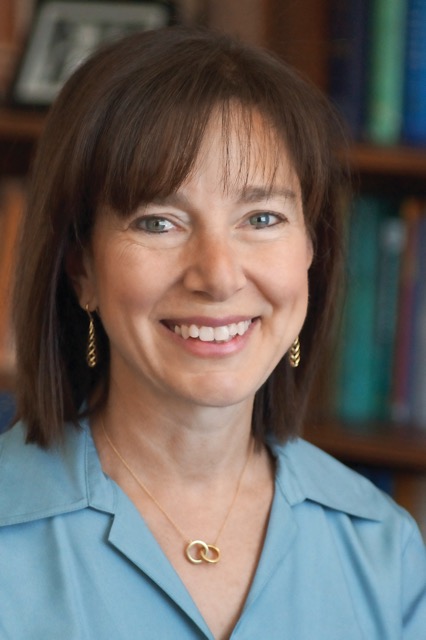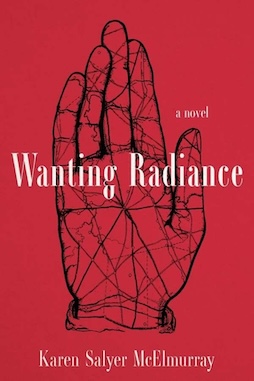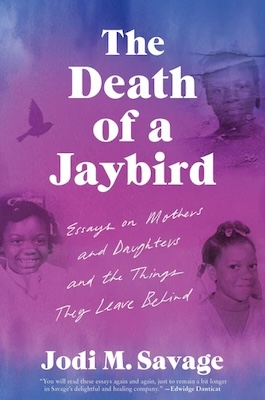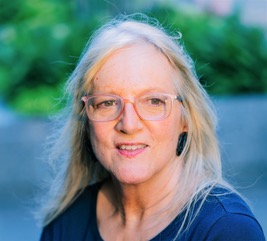
Reyna Marder Gentin grew up in Great Neck, New York. She attended college and law school at Yale. For many years, she practiced as an appellate attorney representing criminal defendants who could not afford private counsel.
Reyna studied at the Writing Institute at Sarah Lawrence College, and her fiction and personal essays have been published in The Westchester Review, The Write Launch, and elsewhere. Unreasonable Doubts is her first novel. She lives with her family in Scarsdale, New York. To learn more, please visit reynamardergentin.com.
Reyna Marder Gentin interviewed by Sandra Fluck
A legal theme runs through your debut novel Unreasonable Doubts. What is it about?
Unreasonable Doubts is the story of Liana Cohen, a young attorney who after several years working as an appellate public defender has lost the ability to find that thread of redemptive humanity in her clients that she needs to represent them with the passion she once had. Her doubts about her career choices have spilled over into her personal life, contributing to a strain in her relationship with her longtime boyfriend. Everything changes when Liana is assigned to represent Danny Shea, a man convicted of a terrible crime who she believes is innocent. Danny gives Liana a renewed sense of hope, but he also turns her world upside down!
You practiced law as an appellate attorney for indigent criminal defendants. How did your experience inform the novel?
I don’t read many legal thrillers or watch much television about lawyers or crime, but when I do, I find it jarring when the legal material doesn’t ring true – when things happen in the fictional portrayal that would never happen in real life. Although I have certainly taken liberties in Unreasonable Doubts, I think my many years of practice allowed me to create a very realistic depiction of how an appellate public defender’s office works, how an appeal is handled, and how the court system functions.
Like Liana in the novel, I was always aware that each of my clients had a much deeper story that I would never know which led up to the moment when he made the choice that landed his file on my desk. Writing the novel allowed me to create that story.
The cast of characters in Unreasonable Doubts is so tightly woven that the plot would unravel without one of them. Did the characters pick the plot, or the plot pick the characters?
I would say both. I had various characters in my head that I wanted to develop. For example, I didn’t know when I started to write the novel what part in the story a rabbi would play. Yet, when the plot began to take shape, it became very clear to me that Liana needed some spiritual guidance on matters of love and the pursuit of justice, and that I needed to create the character who would play that pivotal role. So did the rabbi pick the story or did the story pick the rabbi? I don’t really know, but he had to be there.
The literary technique juxtaposition (“side by side”) that you use to contrast Jakob Weiss and Danny Shea is very effective. Why do you think the juxtaposition is so effective?
I don’t want to reveal too much of the story here, but I think the comparison between Jakob and Danny is effective because it is emblematic of the pull in opposite directions that Liana experiences. Jakob is everything that Liana knows she should want – he’s smart, attractive, ambitious, devoted to Liana and ready to marry, but he’s also consumed with his career. Danny is completely the opposite – he has a questionable past and an uncertain future, but he’s magnetic, sexy, possibly dangerous, and obsessively focused on Liana. It would be too simple to say that it is a good boy/bad boy comparison, as they are both more complicated people than that, and Liana’s growth in the book allows her to see the good in both and ultimately make the choices she needs to make.
When you enrolled in your first writing class at the Writing Institute at Sarah Lawrence College in September 2014, what did you hope to accomplish? Had you been writing prior to the first class?
I had certainly been writing for many years prior, but almost exclusively legal briefs. I took my first class at Sarah Lawrence at the urging of a friend who had signed up for introductory memoir writing. The timing turned out to be perfect, as I had just left my job after almost 18 years, and I hadn’t made any real plans for how to spend my time. Although I didn’t have any intention of writing a memoir, and still don’t, I was able to use the class to write short personal essays that focused on different pivotal moments in my life, many around the issue of loss – of my parents, of a friend, of my rabbi. I learned a lot about how to use language in a way to evoke emotion and to reveal character. Snippets of some of those pieces found their way into the novel.
In summer 2015 you wrote the story in six weeks and spent nearly three years rewriting it. What lessons did you learn about rewriting? Did you write a minimum number of words every day?
When I finished a first draft of Unreasonable Doubts I thought it was ready to go. I wrote it in a great outburst of productivity, dialogue coming into my head whenever I was in a quiet enough state to allow it. It took many rejections and much soul searching to understand that there was a tremendous amount of work still to be done! I think the most important lesson I learned is that it is very hard to judge your own tone when you write. For example, there were passages in the first draft that I thought established Liana as feisty and edgy. Only after a number of early readers told me that they were having trouble relating to her did I realize that I’d written her too off-putting. Or similarly, for the Danny character to have depth, I needed to capture his intelligence and yearning to be a better person along with his compelling good looks. When some early readers told me he was just too smooth, it was back to the drawing board.
Unreasonable Doubts seems like a novel that could be adapted to the stage or film. Is this a future avenue to explore?
A number of people have told me that the novel reads like a screenplay, and I would certainly be wildly excited to see it as a movie or a television movie.
What childhood books did you read that were instrumental in becoming a lawyer? A writer?
I didn’t happen upon the idea of becoming a lawyer until I reached senior year in college and had no idea what I was going to do to make a living. I think in my generation, law as default was pretty common, especially for those with a strong academic record who could go to a top law school and know there would be a job on the other side. So I didn’t have childhood books that made me want to be a lawyer.
And, although I certainly always loved to read, both as a child and as an adult, and I harbored a deep fantasy of writing a novel, I never contemplated actually becoming a writer until I sat down to write this novel.
What authors have inspired you to write? Would you consider them mentors?
I think the question of mentoring is a very important one, especially for young people starting out. For myself, my mentors are the people who guided me along in my career as an attorney, long before I tried my hand at creative writing. I had a law school professor who encouraged me to follow my heart and take the plunge into Legal Aid and representing poor people. I had a wise and kind boss at my first Legal Aid job who encouraged me to be compassionate and who let me cry on his shoulder in the beginning when it all seemed too overwhelming. And I clerked for a wonderful Federal Court judge, who taught me by example about dignity and respect and how to carefully choose one’s words. With regard to my writing, I feel very fortunate to have had both teachers and fellow students in the many workshops I have taken at Sarah Lawrence, all of whom have acted as mentors for me in this process.
What books are you reading now?
I read very slowly and usually only one book at a time, and therefore not nearly the volume of books I would like. I read almost exclusively fiction, and I did spend a chunk of my summer on Steinbeck’s East of Eden. That being said, I find myself in the middle of three non-fiction books at the moment: Israel, a Concise History by Daniel Gordis, True Gentlemen, an expose of the fraternity system by Bloomberg reporter John Hechinger, and Annette Gendler’s memoir, Jumping over Shadows.
You are giving a talk to a group of students about being a writer. What advice do you give them?
Write in the genre that speaks to you, and don’t be afraid to try different types of writing at different times. Don’t count yourself out of anything – don’t tell yourself you can’t write a memoir piece because you haven’t had an extraordinary life, and don’t tell yourself you can’t write humor because you aren’t “funny.” Don’t tell yourself you can only write for adults if you feel moved to write for children. There are so many modes of expression, and you need to try whatever speaks to you at any given time. Let the story you want to tell dictate the way you write it, and not some preconceived notion. And don’t be afraid of hard work – what looks seamless and easy was undoubtedly hard won.






3 comments
Eager to read this novel, intrigued to see how a public defender’s office works, and pulled in by the author’s desire to flesh out a story of a man accused of a serious crime. Wonderful interview!
Very nice interview!
Very nice interview, Sandy.